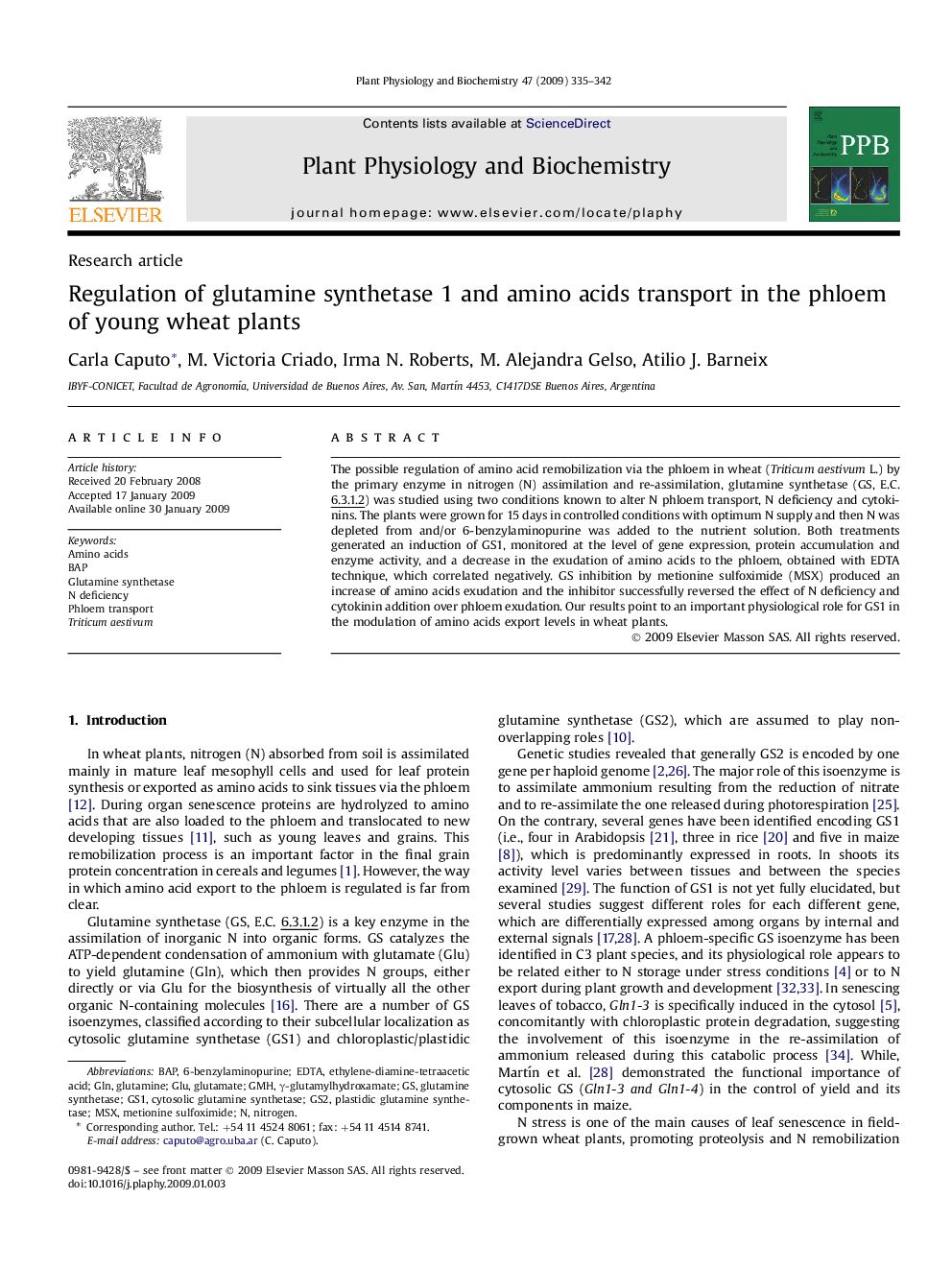| Article ID | Journal | Published Year | Pages | File Type |
|---|---|---|---|---|
| 2016769 | Plant Physiology and Biochemistry | 2009 | 8 Pages |
The possible regulation of amino acid remobilization via the phloem in wheat (Triticum aestivum L.) by the primary enzyme in nitrogen (N) assimilation and re-assimilation, glutamine synthetase (GS, E.C. 6.3.1.2) was studied using two conditions known to alter N phloem transport, N deficiency and cytokinins. The plants were grown for 15 days in controlled conditions with optimum N supply and then N was depleted from and/or 6-benzylaminopurine was added to the nutrient solution. Both treatments generated an induction of GS1, monitored at the level of gene expression, protein accumulation and enzyme activity, and a decrease in the exudation of amino acids to the phloem, obtained with EDTA technique, which correlated negatively. GS inhibition by metionine sulfoximide (MSX) produced an increase of amino acids exudation and the inhibitor successfully reversed the effect of N deficiency and cytokinin addition over phloem exudation. Our results point to an important physiological role for GS1 in the modulation of amino acids export levels in wheat plants.
